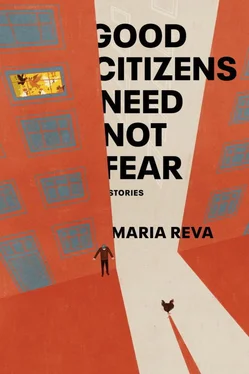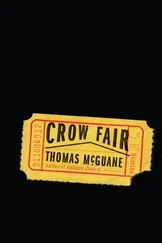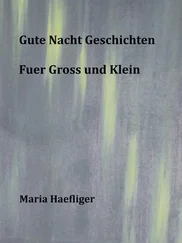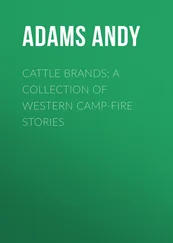The girl didn’t look up when Konstantyn reached her. She had already dug an impressive hole using a flat stone. He demanded an explanation, but she gave none. When he begged her to come back inside, she ignored him. He took hold of her arm; she screamed. His hand jerked away as if scalded.
Several stories above, a window slammed shut.
For some time, Konstantyn watched her dig. If he were her father, he wondered whether he would know what to do. People with children always seemed to know.
A tuft of yellow hair poked out from the pillowcase. It looked remarkably real. Konstantyn sat on his haunches, pulled back the fabric. A face squinted up at him, brown and shriveled. Not a doll—human. Very dead. Oddly short. “What did you do?” he stammered at the girl, as though she had just murdered the thing, hacked half of it off, and was attempting to bury the evidence.
She grabbed a broken beer bottle by its neck, and brandished it at Konstantyn. He tipped backward.
“Use this,” she explained. She was worn out, her breathing heavy.
It was then that Konstantyn felt something inside him melt. The bottle was not meant to be a threat—the girl was asking for help. For the first time, Konstantyn found he was not repulsed by her. He could sympathize with her as he was supposed to. Bolstered by his newfound virtue, he slowly reached for the broken bottle, the fragile offering. He began to dig alongside the orphan, averting his eyes from the mummified creature—“a saint,” he remembered now. Not wishing to spoil the moment, he posed no further questions.
The night sky faded to a grayish green. When the girl stopped digging, so did he. With great care she lowered the bundle into the pit, which they then refilled with dirt. She pressed the fresh earth with her palms, and pulled dried weeds over it like a blanket.
They sat beside each other on the edge of the flower bed, silent. The girl’s usual scowl had softened. She regarded the novostroïki enclosing the courtyard as though they had done something to disappoint her.
“Pageant or no pageant,” she said in her slurring voice, “you want to take me back to the internat .” There was no plea in her tone, only resigned observation. Konstantyn couldn’t bring himself to lie. As he fumbled for the right words, she spoke again. “I’ll go to Moscow.”
This surprised him. He hadn’t expected her to change her mind. “You’ll run away.”
“Already tried. I’ll just end up back at the internat .”
“Then why?”
She scraped dirt from under her nails. “Why not.”
“We have three weeks. A lot of work ahead of us.”
The orphan gave Konstantyn a searing smile. Her teeth were nightmarishly crooked, as though she had stuck them in herself as a toddler. “I’m your girl.”
—
After that night, Zaya became surprisingly agreeable. She ate whatever Konstantyn cooked with a methodical determination: fatty cutlets, greasy stews, fried potatoes and pork rinds doused in sour cream. She plodded through tongue twisters to sharpen her diction. She attempted to straighten her teeth by pressing on them with the back of a spoon. She spent the crisp spring afternoons tanning her towel-wrapped self on the balcony—smoking dulled her fear of heights—and her bluish pallor gave way to a soft buttermilk. (Zaya still considered the issue of bodily hair moot, but Konstantyn made peace with this, not wanting to strain the fragile alliance.) To practice pivoting in heels, she wobbled around the apartment in a pair of velvet pumps Konstantyn found at the back of the closet—Milena’s, surely, though he’d never seen her wear them. Konstantyn borrowed a silvery wig from a neighbor who had worn it during chemotherapy, and Zaya pulled it onto her shorn head and flicked the locks over her shoulders, like the actresses she observed on television. She rehearsed the speech he’d written for her: “My name is Orynko Bondar, from Kirovka, Ukraine,” she would begin. Though Konstantyn felt strange hearing her use another’s name, Zaya herself seemed unfazed, as though identity were nothing more than a hat she could slip on and off. “I love the sea and the smell of rain,” she would chant at him. “I love animals, especially dogs.” She would exclaim, “Beauty will save the world,” almost as if she believed it.
For the gown round, Konstantyn unearthed a mustard-yellow dress with extra-wide bishop sleeves that gathered into elastic cuffs, gifted to Milena from his mother for their marriage registration.
Konstantyn fashioned the crown and sash replicas from the same materials he’d used for the originals: a three-liter tin can dipped in glitter, a polyester only-for-guests tablecloth. Zaya practiced the grand reveal. Upon reaching the end of the catwalk (corridor), she slid the crown and sash from her sleeves, put them on, pretended to bask in the applause, and strutted back.
The bathing costume, also Milena’s, was a thick wool tunic with knee-length bloomers, possibly procured from the Victorian era. Bloated with ruffles and pleats, the garment perplexed both Zaya and Konstantyn. “Even if I knew how to swim, I’d drown in this thing,” she said the first time she donned it. Konstantyn, however, appreciated the full coverage. Though his own pageant had included a bathing suit round, he felt a moral discomfort about the impending one in Moscow. He did not like to imagine the leering eyes of the entire Union on the contestants, and on this contestant in particular, whose qualities could not be assessed by mere stage light.
The more Konstantyn occupied himself with training Zaya, the less he thought about his wife. One hour, two hours, would pass by without Milena flitting through his mind. When he woke in the morning, he no longer had to remind himself why she was not lying beside him.
—
“What’s the one thing people don’t know about you?”
Zaya stood atop a chair, her makeshift stage, holding a wooden spoon as a microphone. They hadn’t rehearsed this interview question before. “What people?”
“Friends, family.” He’d uttered the second word without thinking. She let him wallow in his own shame for a moment. “People at the internat, ” he amended.
“You can’t take a squat there without an audience. Everyone knows everything about everyone.”
“Some hidden talent,” he ventured. “A secret wish.”
Zaya peeled off her wig, rubbed her bristly scalp. The effect of the rich stews was beginning to show: no longer did shadows fill her cheeks, hang from her jutting collarbones. She resembled the teenage boys who roamed the neighborhood at night, scrawny but not skeletal.
“Sometimes I wish I’d never learned to talk,” she told him. “What’s the point?”
“We’re talking now, aren’t we?”
She nodded at the window. “But out there it’s dead space. No use running your tongue because who listens? It’s worse to know it.” She turned back to him. “But I can’t say that at the pageant.”
If it were up to him, he wanted to assure her, she could. Instead, he said, “The judges want something hopeful.”
“Hopeful.” Zaya flashed a plastic smile. “How about a poem?” She lifted the microphone-spoon to her lips, launched into a recitation. “Belts bearings cab chassis / Decals duals dewy in the sun / Engine hitch…”
It took a moment for Konstantyn to recognize the poem as one of his own. What were meant to be free-flowing lines, carried by intuition and inspiration, were chopped up, forced into the metered lilt of a nursery rhyme. He’d been proud of that poem, how it concluded with the setting sun painting the metals red—a delicately hidden representation of rust, or societal decay. Now the words made him cringe.
Читать дальше












